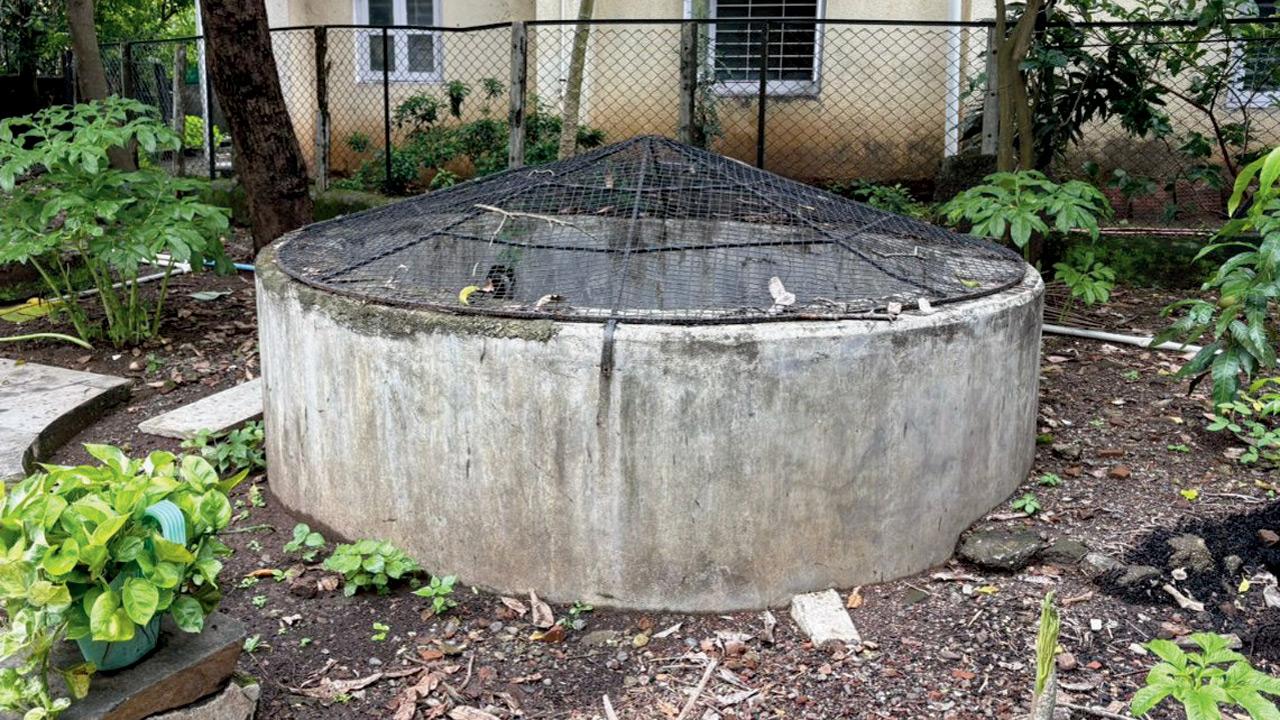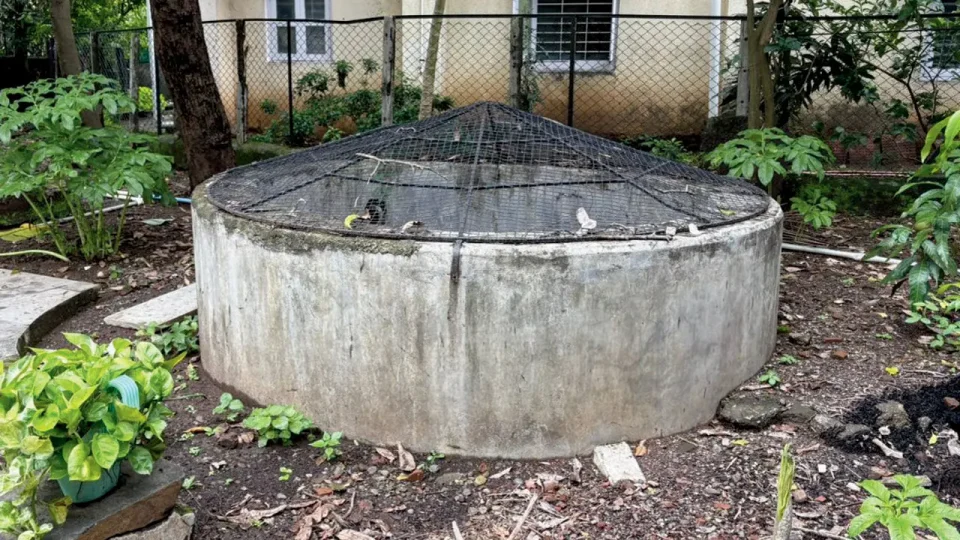
Hailing from Kondale wadi in Vasai’s Sandor village, Ulhas D’Silva has grown up celebrating Sa-Jao, a colloquial name for Sao Joao, the feast of Saint John the Baptist, observed on June 24 every year by Mumbai’s Catholic community and locals in Goa. Coincidentally, the community largely believes that it rains on the same day every year, and it was no different this time, as parts of the city, including Vasai, experienced rain a few hours before the clock struck 12 and continued through the night. Being a weekday, the celebrations are usually held on the Sunday before or after. While there is food and drink like every other festival, the most enjoyable part of the celebrations is when locals swim in wells that still exist in abundance in the northern town, which houses a sizable population of the East Indian community.
Jump in the well!
Culturally, leaping in the well is associated with the Biblical event ‘Magnificat’ of the Mother Mary meeting her cousin Elizabeth, who was pregnant with John the Baptist at the time, while the former was also carrying Jesus Christ. As soon as she heard it, Elizabeth felt John the Baptist leap in her womb. Interestingly, D’Silva says Vasaikars, looking beyond the belief, also swim to beat the heat, as the weather only gets cooler from here on. He explained, “The local tradition bears a strong resemblance to that of the Goan-Portuguese community, as the majority of the priests in Vasai churches earlier came from Goa.”
Natasha Almeida, who lives in Tamtalao village; (right) Vasai resident Ulhas D’Silva beats the heat with his niece. Pics/By Special Arrangement
Chiming in, Natasha Almeida, who is from Tamtalao, another East Indian village in Vasai, explains, “We also jump in the well, which we call a ‘baokhal’, because it is still available in our house and our villages. It is also the end of the summer vacations and the start of school, so we usually say, ‘Baokhalat jaun tumhi jump karu shaktat’. It is not too deep, and people enjoy themselves.”
Unlike the rest of Mumbai, Vasai, she believes, still boasts of the wells for more than one reason. While housing apartments are still to take over the East Indian village homes, she adds, “The locals are still rooted to their culture. While most of the younger generation have gone abroad in search of better opportunities, the older generation is still here and doesn’t want to change their lifestyle as they are happy with the way they are living.” That has, in turn, helped preserve the wells, which form an important part of this festival, which is celebrated annually without fail. “The celebrations also have music, and Sa-Jao festivities usually also include a live band with somebody playing the ghumat [earthen vessel] and other instruments.”
Adoring sons-in-law
Sa-Jao is also called ‘Javaycha Sann’ (son-in-law’s festival) in the region because the celebration also calls for hosting and throwing a feast for new sons-in-law, who arrive at the household of their spouse’s kin the night before the festival.
Fugiyas, deep-fried fermented dough balls, being prepared; (right) Pork indyal (vindaloo), a spicy delicacy
D’Silva, who got married in 2023, explained, “Families used to announce their joy with firecrackers. However, they are no longer a part of it now, thanks to the active advice of the church, apart from the fact that the loud noise of these crackers induces nausea in expecting mothers.” Some churches, he added, now also host a gathering for newlywed couples who have got married in the past year, where they are invited to the wife’s parish. There is also a tradition of making fugiyas [mildly sweet and deep-fried fermented dough balls],” the 32-year-old Vasaikar added gleefully. But this is not the only delicious East Indian delicacy couples get to enjoy. “The son-in-law is welcomed home and treated to dishes such as pork indyal (vindaloo) and chicken roast, which are some of the delicacies made when a newly married couple comes home on the third day after their wedding.”
After an elaborate feast, the couple is then taken to the well in the home or village, and their feet are washed, said Almeida, a content creator who — along with her mother, Veera Almeida — founded Jevayla Ye, which seeks to preserve and popularise East Indian cuisine.

